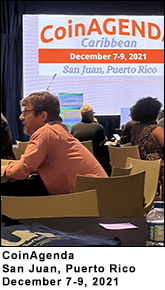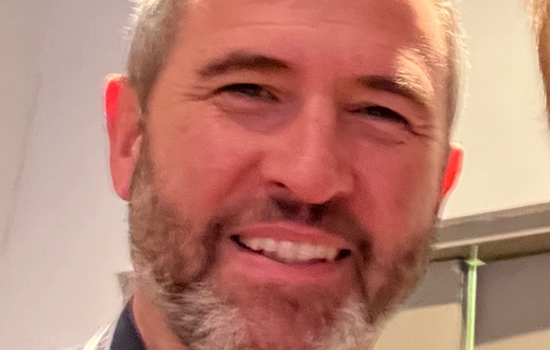From crypto conference , CoinAgenda, in San Juan today, Brad Garlinghouse, CEO of Ripple (the former “peanut butter manifesto” maven of Yahoo!) provided an update on his company as well as thoughts on the coming tokenization wave of many assets.
Light editing for clarity…
On Ripple Performance in 2021
“The United States Securities Exchange Commission filed a lawsuit against Ripple on December 22. So almost a year ago, since that time Ripple has had a heroic 2021. Growth has been extremely strong in terms of our primary metric for success – payment transactions – and we’re still growing more than 100% year on year despite the fact we have sold zero new contracts in the United States in the last year. We’ve lost customers the United States.
XRP basically doesn’t trade in the United States. At Ripple, we sell enterprise blockchain despite all the things we do to keep regulatorily compliant – US companies are going , “Look. We’re gonna wait and see what happens.” But the good news is, when you go and talk to banks and institutions around the world, they don’t care. I was in the Middle East a few weeks – certainly in the UK – those customers are just paying because it adds value, it decreases their costs is improving the product experience for their customers… We’ve signed scores of contracts in 2021. It has been a great year -but zero contracts in the United States.”
On NFTs
“NFTs (non-fungible tokens) are underhyped.
Yes, there’s definitely a lot of hype right now, people like to talk about them in terms of art, music. I think NFTs are just the tokenization of lots of assets – we aren’t even in the first inning, we’re like playing T-ball in the Little Leagues.
NFT’s are definitely here to stay and will have a bigger impact in lots of different parts of the financial system.”
 On the metaverse
On the metaverse
“I think the metaverse is overhyped. We’ve all seen the Mark Zuckerberg video and then the guy from Iceland who did the video afterwards, which was genius.
[Related to this, I] bought a book called Snow Crash by Neal Stephenson in about 1995-96. If you haven’t read the book, you should go read it. When I read it in 1996, the common wisdom at the time was this idea of something Metaverse-like, was five, maybe 10 years away. Since then it has been a constantly rolling five to 10 years away.
And I think five or 10 years from now, it’s still another five years away. I’m not saying that digitally enhanced virtual realities aren’t going to exist – they exist today. I’m not sayng this isn’t real technology. I’m saying the metaverse – as some people envision it – I just think we like to be in person.”
On DeFi
“There’s things driving yield in De-fi and I’m like, ‘Wait a minute, that does not pass my sniff test. How is that possible?’
I’m worried a little bit about things that aren’t sustainable over the long arc of time and aren’t necessarily good for the industry overall.
So I’m confused by some of the defi stuff because I don’t understand how you can yield with rates that are way above any kind of normal market and not be taking a lot more risk.”
On DAOs
“I am a skeptic/cynic about DAOs. I think DAOs can exist in a Metaverse purely digital environment. But… You may have heard about a DAO buying a building in Miami… How many people here have bought a piece of real estate United States? At some point, somebody came to you during that process and they said, ‘Give me a copy of your passport. What’s your social security number?’ There are laws and regulations that we can argue about the laws, but the laws are there. And the laws require all kinds of KYC and AML kind of verifications and so if an anonymous DAO was buying a building in Miami – well, it’s never going to happen. So my point on DAOs is it’s okay in an all digital world.
So I think DAOs literally stand for ‘decentralized, autonomous organizations.’ Are they really decentralized organizations? I’m not a believer. “
On what bets to make going forward, in general
“This [crypto] industry when I got involved was $20 billion -now its over 2 trillion, and I would argue on the way to 20 trillion. That’s a massive amount of value creation. The advice I give people is get into an industry that’s going to change the world in the next 10-20 years.
When I got involved in the Internet was 1995 and I felt like it was a good bet and where I’m going to spend the next 20 years. Shifting to crypto [for me] was a strategic bet. It has exceeded my expectations. The other bet I’d make is genomics – what’s going on in that industry is totally fascinating. “

